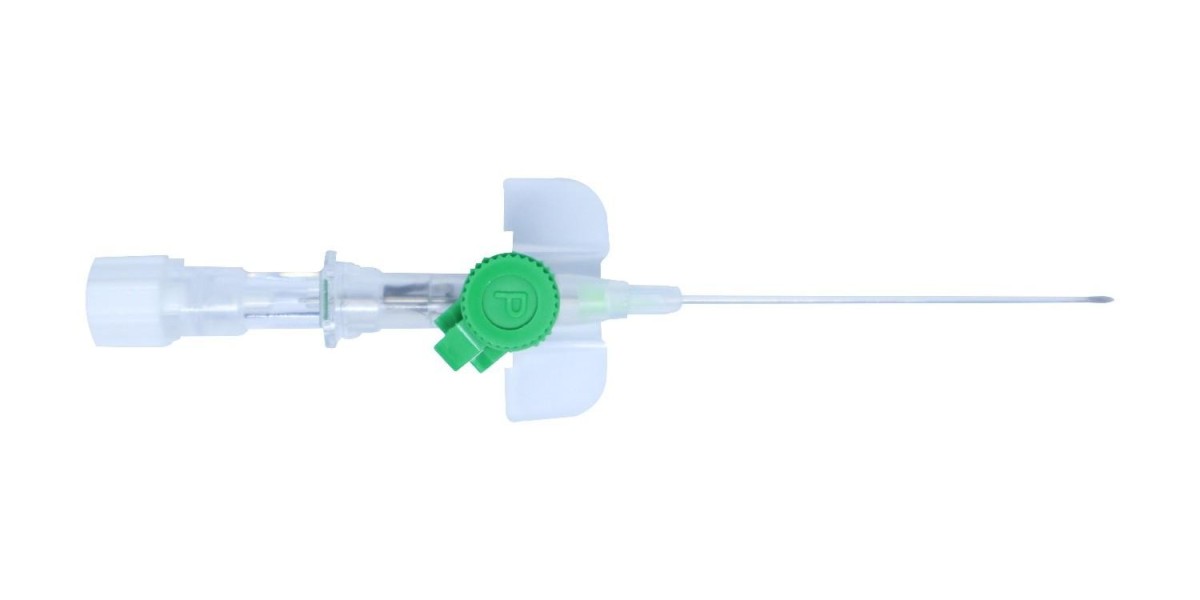In the medical world, intravenous (IV) therapy is a cornerstone for delivering fluids, medications, and nutrients directly into a patient’s bloodstream. The key instruments making this process possible are the IV needle and catheter — two components that work together seamlessly to ensure safe, efficient, and pain-minimized administration of intravenous treatment.
This article explores in depth the relationship between an IV needle and a catheter, how they function, the different IV catheter types and IV catheter sizes available, their applications, and why innovations in this field are revolutionizing modern healthcare.
What is an IV Cannula?
An IV cannula is a small, flexible tube inserted into a patient’s vein to allow fluids or medicines to be administered directly into the bloodstream. It is composed of two main parts: the needle and the catheter.
Needle – Used for puncturing the vein.
Catheter – A flexible tube that remains inside the vein after insertion, enabling continuous fluid delivery.
The needle’s role is temporary — once the vein is accessed, it is withdrawn, leaving the catheter inside for ongoing therapy.
How the IV Needle and Catheter Work Together
When medical professionals insert an IV catheter, the process starts with the needle piercing the skin and vein. The catheter, which sits over or alongside the needle, slides into the vein once the needle has created the access point.
The needle then acts like a guide, but it is removed immediately after insertion, ensuring the patient only has the iv catheter parts (soft plastic tubing) inside their vein — reducing discomfort and preventing long-term damage.
Different IV Catheter Types
Modern healthcare offers several IV catheter types to suit different medical needs. The choice depends on the patient’s condition, treatment duration, and type of fluids being administered.
1. Peripheral IV Cannula
Most common type
Used for short-term treatments like antibiotics, hydration, or pain relief.
2. Central Venous Catheter
Inserted into a larger vein near the heart
Suitable for long-term treatments like chemotherapy.
3. Butterfly IV Catheter
Equipped with flexible “wings” for easier handling
Often used for quick infusions or blood draws.
4. Safety IV Cannula
Includes a safety mechanism to prevent accidental needle-stick injuries.
Understanding IV Catheter Sizes
The IV catheter sizes (measured in gauge) determine how quickly fluids can flow. The smaller the gauge number, the larger the diameter.
Common sizes:
14G – 16G: Emergency situations, rapid transfusions.
18G – 20G: General medication and hydration.
22G – 24G: Pediatric or elderly patients with fragile veins.
Why Needle Design Matters
The IV catheter needles are designed for precision and minimal trauma. Key design elements include:
Bevel tip for smooth entry
Thin walls for better fluid flow
Ergonomic hub for better control during insertion
Advanced manufacturers like Lars Medicare Private Limited ensure their products combine patient comfort with clinical efficiency.
IV Cannula Manufacturers and Quality Standards
Choosing the right IV cannula manufacturer is crucial. Top-quality IV cannula brands follow international safety guidelines, use biocompatible materials, and integrate safety mechanisms.
Safety Features in Modern IV Cannulas
Modern safety IV cannula designs include retractable needles or protective sheaths to reduce the risk of needle-stick injuries for healthcare workers.
Applications in Modern Medicine
The combination of IV needle and catheter is essential for:
Medication delivery
Blood transfusion
Nutritional therapy
Fluid replacement in dehydration or shock
Chemotherapy and long-term treatments
Innovations in IV Catheter Technology
Manufacturers are developing:
Needle-free connectors
Pressure-resistant tubing
Smaller gauge needles with higher flow rates
These advancements aim to improve both patient comfort and medical efficiency.
Conclusion
The relationship between an IV needle and catheter is at the heart of safe and effective intravenous therapy. From selecting the right iv catheter sizes and iv catheter types to choosing reliable iv cannula manufacturers, every step impacts patient care.
As medical technology advances, Lars Medicare Private Limited continues to lead with innovative, safe, and patient-friendly IV cannula solutions for global healthcare.







